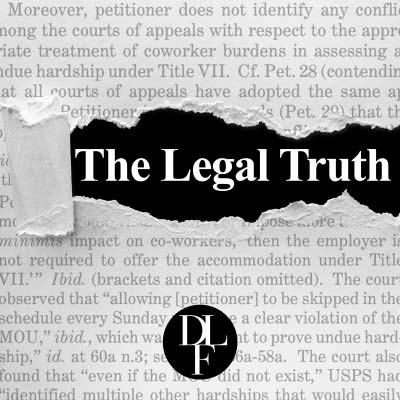Boat Accidents
Myrtle Beach's waters can be treacherous. Boating accidents, whether from collisions, falls, or diving incidents, can result in spinal cord injuries, especially if proper safety measures aren't followed.
Work Accidents
Construction sites, warehouses, and other workplaces pose risks for spinal cord injuries. Falls from heights, heavy equipment accidents, and lifting injuries can all lead to severe spinal cord damage in work accidents.
Types of Spinal Cord Injuries
Spinal cord injuries vary in severity and have different long-term implications. Common spinal cord injuries include:
Complete Spinal Cord Injuries
Complete spinal cord injuries result in total loss of sensory and motor function below the injury site. These injuries often lead to paraplegia or tetraplegia, depending on the location of the injury. The severity of a complete injury can significantly impact a person's independence and quality of life. People with complete spinal cord injuries often seek substantial compensation due to the lifelong care requirements and profound lifestyle changes involved.
Incomplete Spinal Cord Injuries
You may retain some function below the injury site if you suffer an incomplete spinal cord injury. The degree of impairment can vary widely, from mild weakness to significant paralysis. These injuries are often classified using the ASIA Impairment Scale, which ranges from A (complete) to E (normal). Incomplete injuries may have better prospects for recovery than complete injuries, but the extent and timeline of improvement can be unpredictable. This uncertainty can complicate legal proceedings, as future medical needs and long-term prognosis may be less clear-cut than in complete injury cases.
Cervical Spinal Cord Injuries
Injuries to the neck area can result in quadriplegia, affecting all four limbs and potentially impacting breathing and other vital functions. Cervical injuries are often the most severe type of spinal cord injury, as they can affect a wide range of bodily functions, including respiratory control, temperature regulation, and blood pressure management. The higher the injury on the cervical spine, the more extensive the impairment tends to be. Legal cases involving cervical injuries typically involve complex calculations of lifelong care costs, including potential needs for ventilator support, specialized adaptive equipment, and round-the-clock personal care assistance.
Thoracic Spinal Cord Injuries
These injuries affect the upper chest area and can lead to paraplegia, impacting the lower body and legs. While arm and hand function is typically preserved, thoracic injuries can still significantly affect mobility and independence. Patients may require wheelchairs for mobility and may experience complications such as spasticity, pressure sores, and changes in bladder and bowel function. Damages for thoracic injuries often include home and vehicle modifications, ongoing physical therapy costs, and potential loss of earning capacity.
Lumbar and Sacral Spinal Cord Injuries
Injuries to the lower back can cause varying degrees of leg weakness or paralysis and may affect bowel and bladder control. These lower spinal cord injuries generally have a better prognosis for some functional recovery compared to higher-level injuries. However, they can still significantly impact a person's ability to walk, control bathroom functions, and have sexual relations. Legal compensation for lumbar and sacral injuries often focuses on rehabilitation costs, adaptive equipment needs, and compensation for lifestyle changes and potential career impacts.
Central Cord Syndrome
Central cord syndrome is a specific type of incomplete spinal cord injury that predominantly affects the cervical region. It typically results in more significant weakness in the arms and hands than the legs. Central cord syndrome is often seen in older adults with underlying spinal stenosis who experience a hyperextension injury. Recovery can be variable, with some patients regaining significant function over time. Legal cases involving central cord syndrome may need to account for the potential for some recovery while also addressing the patient's immediate and long-term care needs.
What Does a Spinal Cord Injury Lawyer Do?
Our spinal cord injury lawyers serve as advocates and guide our clients through the legal process. If we are able to handle your claim we would:
- Evaluate you case. We will investigate your accident, gather evidence, and determine the strength of your claim.
- Develop a comprehensive legal strategy. Based on the specifics of your case, we may create a tailored legal strategy aimed at maximizing your compensation.
- Negotiate with insurance companies. Your lawyer would handle all communications with insurance adjusters. This saves you from the stress of talking to insurance adjusters and the potentially costly problems of making a mistake that could prevent you from getting a fair settlement.
- Litigate your case. If a fair settlement can't be reached, your attorney would prepare your case for trial, including gathering witness testimonies and preparing you for court proceedings.
- Calculate your damages. We can work with medical experts and economists if necessary to accurately calculate the full extent of your current and future damages, ensuring you seek appropriate compensation.
What Can I Recover in a Spinal Cord Injury Lawsuit?
A successful spinal cord injury lawsuit may provide compensation for various aspects of your life affected by the injury. Potential recoveries could include:
- Medical expenses. This covers current and future medical costs, including hospitalization, surgeries, medications, and ongoing rehabilitation.
- Lost wages and earning capacity. Compensation for income lost due to your injury and potential future earnings if your ability to work has been impacted.
- Pain and suffering. Non-economic damages for the physical pain and emotional distress caused by your injury.
- Home modifications. The costs of adapting your living space to accommodate your new needs, such as wheelchair ramps or specialized bathroom fixtures, may be included in your recovery.
- Life care costs. If necessary, expenses for long-term care needs include in-home care or assisted living facilities.
- Loss of enjoyment of life. Compensation for the inability to engage in activities and hobbies you once enjoyed due to your injury.
What Should I Consider When Hiring a Spinal Cord Injury Lawyer?
Choosing the right lawyer could make a difference for the success of your case. Consider these factors when making your decision:
- Experience with spinal cord injury cases. Look for a lawyer who has a track record of handling cases similar to yours. They should be familiar with the unique challenges and complexities of spinal cord injury claims. While past case results do not guarantee an outcome in your case, they can give you an idea of how our attorneys approached similar cases.
- Resources and network. A strong legal team should have access to medical experts, accident reconstruction specialists, and other professionals who can strengthen your case.
- Communication style. Choose a lawyer who explains legal concepts clearly and keeps you informed throughout the process. You should feel comfortable asking questions and expressing concerns.
- Reputation and reviews. Research the lawyer's reputation in the legal community and read client testimonials to gauge their effectiveness and client satisfaction. F.A., an auto accident client of ours who suffered a spinal cord injury in a rear end hit and run car accident, said this about working with Attorney Allyson Pittman, “I was involved in a hit in run accident. Allyson Pittman worked quickly to help me cover all my medical costs and property damages from the wreck. They did all they could to help me get my money. They were kind and professional during the entire process." While we can't guarantee specific results and past results not guarantee any future result as every case is different, we encourage you to review our case results and client testimonials on our website.
- Personal connection. Trust your instincts. You should feel a sense of trust and confidence in your chosen attorney, as you'll be working closely with them during a challenging time in your life.

 You already know that a spinal cord injury will change your future in ways you couldn’t have imagined before the accident. While our
You already know that a spinal cord injury will change your future in ways you couldn’t have imagined before the accident. While our 

